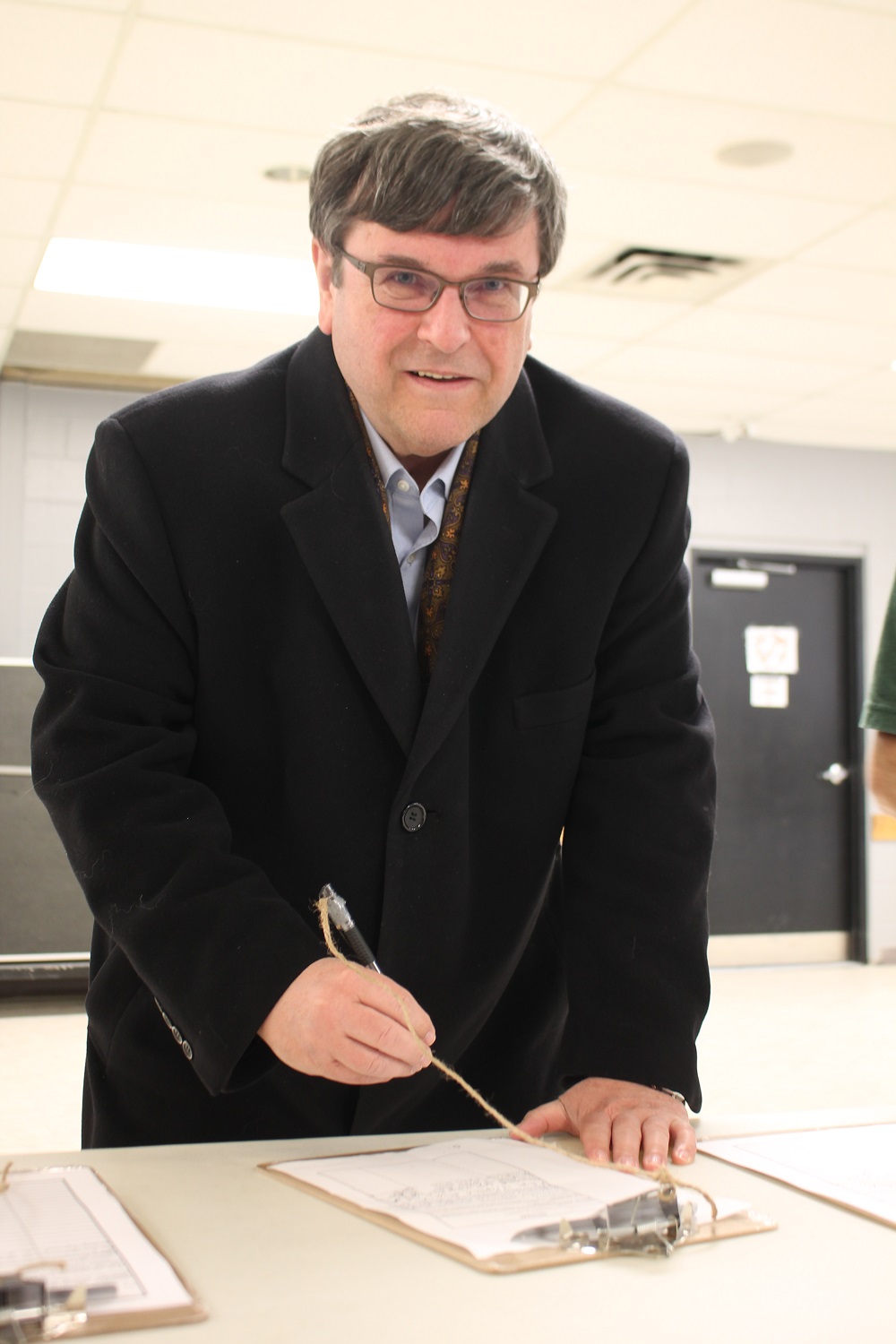Minden Hills mayor Bob Carter and deputy mayor Lisa Schell have criticized HHHS and its board for what they say is a total lack of consultation on the decision to close the Minden ER. They have also questioned how management and the board operate.
“We had zero consultation and input into this,” Carter said.
However, HHHS CEO and president Carolyn Plummer, and board chair David O’Brien, told The Highlander, “HHHS has engaged broadly with our local elected officials many times over the past 18 months as we have struggled to deal with our serious staffing shortages. We have been open about those challenges with each of the four townships in Haliburton County, and recently consulted local elected officials through a robust strategic planning process to understand what they wanted to see from HHHS over the next three to five years.”
The Minden mayor alleges the hospital’s executive committee makes decisions, and not the board, during in-camera meetings. He maintained, “the fact is we had absolutely no consultation and we, the elected officials who represent the people … and community well-being is part of our mandate … this was probably one of the most consequential decisions that has been made and we are not part of it. It’s made by an unelected board acting on its own.”
Plummer and O’Brien said the board regularly deals with confidential matters that cannot be discussed in public, such as legal, human resources, property acquisition and disposal, negotiations, and other sensitive items. They said regular board meetings are open to the public and the media, and the board always asks for questions from those in attendance during meetings.
Carter added County council has wanted a representative on the hospital board for some time, “and they have absolutely refused to allow that.” He said in an attempt to improve communications, County council has more recently met with HHHS. The first was about communications, the second on HHHS’ strategic plan, the third on Ontario Health Teams, and this last one on the consolidation.
Plummer and O’Brien said it is not common practice for local elected officials to sit on hospital boards, and across the Ontario Health East region, the vast majority of hospitals do not have municipal politicians on their boards.
“Members of hospital boards have a fiduciary responsibility to the hospital organization itself, which can create conflicts for local elected officials who must represent their particular communities,” they said.
Carter also lambasted HHHS for recruiting management, while cutting back on frontline operations. “There’s something fundamentally wrong with that model.”
But Plummer and O’Brien retorted, “according to metrics from Ontario Health, HHHS’ administrative costs were 13 per cent in 2021/2022, which is lower than most other comparable small-to-medium rural hospitals, whose costs were eight per cent, 16 per cent, 17 per cent, and 19 per cent. It should be noted that HHHS’ administrative costs also include those mandated by the Fixing Long-Term Care Act, 2021, as we are required to have certain leadership positions for each long-term care home.”
Carter further said that Minden emergency operates differently than Haliburton, with 24-hour shifts, versus 12. He said out-of-town doctors attracted to the Minden emergency model won’t go to Haliburton. “Now, you’re going to have to go and replace those 9,000 hours.”
Plummer and O’Brien said HHHS recognizes that patient volumes in the consolidated Haliburton emergency department will be higher overall, which will require a change to their staffing models.
“It should be noted there are currently 10 and 14-hour shifts at the Haliburton ED, and some physicians do work a 24-hour shift in Haliburton. HHHS will continue to work closely with Ontario Health East, the Ministry of Health, and HealthForceOntario to ensure we have the physician coverage that is needed, and these organizations are well aware of our coverage needs.”





